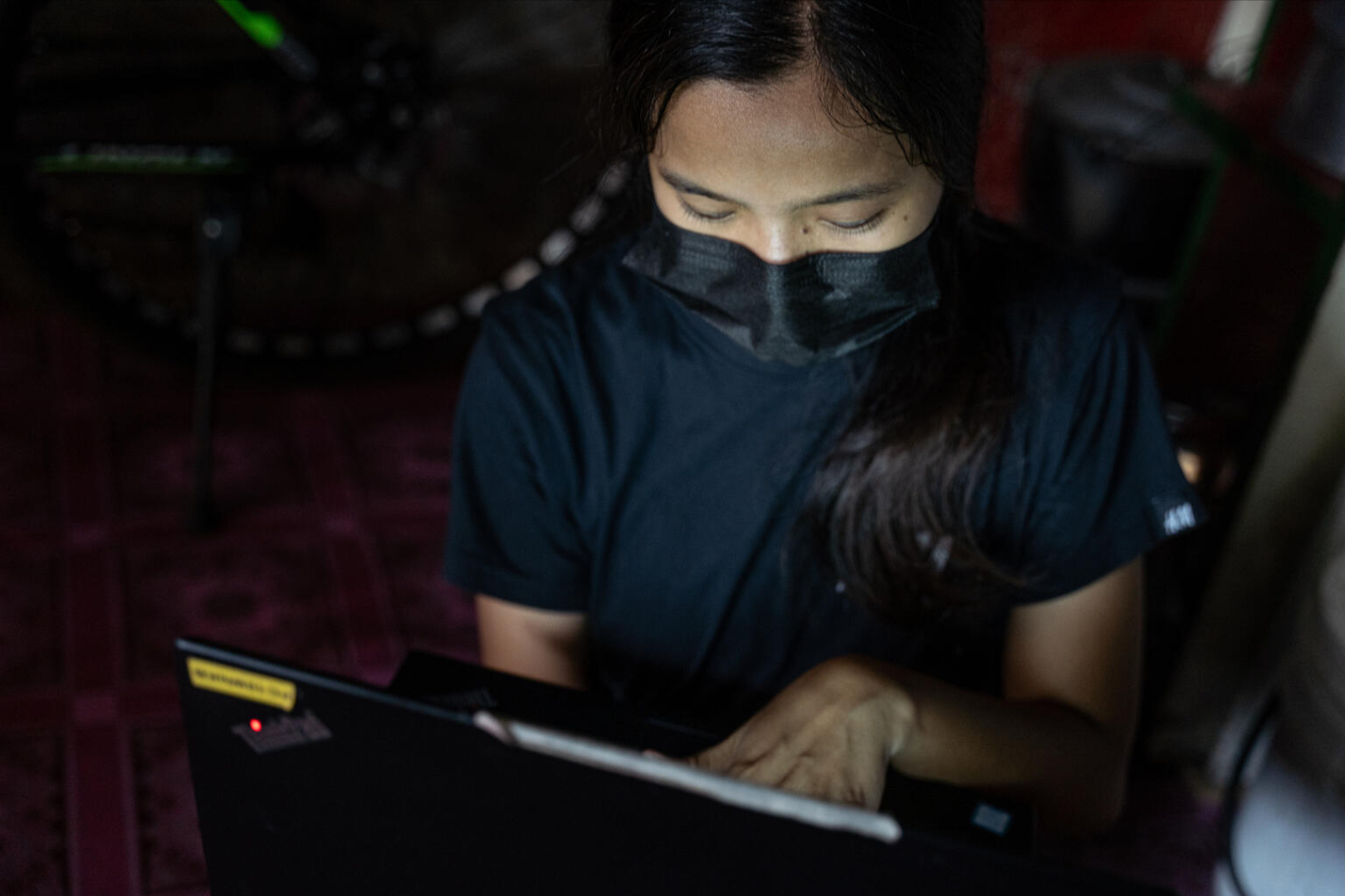
In September of 2021, the End Violence Partnership and the Tech Coalition awarded five organisations with grants to tackle online child sexual exploitation and abuse (CSEA). Through these grants, organizations across the world will undertake groundbreaking research to inform both policy and practice to tackle online child sexual exploitation and abuse (CSEA). One of those organizations is Justice and Care, a United Kingdom-based non-governmental organisation that works with law enforcement officers to rescue victims of human trafficking, protect at-risk communities, and dismantle criminal networks.
With support from the Tech Coalition Safe Online Research Fund and in partnership with International Justice Mission (IJM), Dublin City University and De La Salle University in the Philippines, Justice and Care is launching a study to help the world better understand online sexual exploitation of children in the Philippines – and as a result, provide analysis and recommendations to better detect, deter and prevent this type of violence. This study, Understanding Traffickers and Pathways to Offending: Analysis and recommendations to better detect, deter, and prevent Online Sexual Exploitation of Children in the Philippines, will be implemented from January 2022 through December 2023.
As part of this project, Justice and Care will explore the profiles of those who perpetrate and facilitate online sexual exploitation of children, interviewing convicted offenders, key informants, and others. This analysis will fill a gap in global research into online child exploitation of children and shed light on the “supply-side” of such violence in a country known to be an epicenter of live-streamed child sexual abuse. Ultimately, this research will seek to inform practical strategies and enhance industry, prevention, and law enforcement response to the issue.
End Violence spoke with Nicole Munns, the International Systemic Change Director at Justice and Care, to explore their project further.
Justice and Care’s project is looking specifically into the Philippines. Why is this country an important one to explore when it comes to preventing online child sexual exploitation and abuse? Will the learnings translate to other country contexts?
The Philippines is known to be a global epicenter of live streaming online child sexual exploitation and abuse (CSEA), in which children are trafficked to produce new child sexual exploitation material. Law enforcement and non-governmental organizations in the country have noted a serious online CSEA problem, arguably due to the combination of several enabling contextual factors such as the presence of a historic commercial sex industry, a well-developed money remittance infrastructure, widespread and inexpensive internet access, economic disparity between customer and trafficker, and English language proficiency.
While focusing on the Philippines, we expect that the outputs of our project will contribute to understanding the drivers of, and vulnerability to, online CSEA in other Global South countries with similar contextual conditions. The project will also develop an in-depth understanding of offender and offence profiles that will contribute to enhancements in technological detection and offence prevention across global platform providers and remittance services implicated in these offences.
How will your project contribute to preventing and ending online child sexual exploitation in the Philippines?
The overarching goal of the project is to enhance our understanding of online CSEA offending methods, along with situational factors, motivations, and pathways to offending. A greater understanding of the mechanics of online CSEA offending and of offender pathways is critical to improve the detection, investigation, and prosecution of online CSEA-related crimes. The research will allow us to make rigorous, evidence-based, and actionable recommendations aimed at developing best practices and more effective ways of dealing with this problem, with particular attention to the role of the online industry.
The research will allow us to make rigorous, evidence-based, and actionable recommendations aimed at developing best practices and more effective ways of dealing with this problem. N
These recommendations will also help inform practical strategies related to law enforcement, investigation, and technological and financial facilitation of this crime, ultimately improving the efficacy and impact of protective, deterrence, and preventative approaches to online sexual exploitation of children.
Your project hopes to examine the “supply-side” of online child sexual exploitation. Why is understanding the how and why of this “supply-side” critical?
While there is a growing body of research on the drivers and characteristics of various types of online CSEA, there is a dearth of literature and empirical understanding of the role of “supply side” traffickers who produce new child sexual abuse content. The “supply-side” of this phenomenon has very specific defining traits, distinct from those characterizing the “demand-side” of online CSEA.
For instance, preliminary conviction data for “supply side” Filipino offenders indicates that the vast majority are female and routinely present with financial interests in the offence, which signals a substantial departure from the traditional profile of online CSEA perpetrators, who are largely male, and motivated by a sexual interest in children.
By focusing on the “supply-side” of online CSEA trafficking, our study—which is the first of its kind—will provide an in-depth identification and description of the “supply-side” offending processes and their interactions with “demand-side” factors, which is important to fully understand online CSEA and to devise relevant policy strategies aimed at fighting online sexual exploitation of children.
This project will be done through partnerships with International Justice Mission, and other national and international experts. Why are these collaborations important?
Each of the partners in the research team brings a unique set of skills that will enhance the quality and impact of the project. International Justice Mission—with its long in-country history, subject matter expertise, and strong relationships with relevant stakeholders—will play a key role in all technical, operational, and logistic aspects of the project in the Philippines, liaising with government authorities and partners to ensure that the proposed research can be successfully carried out.
The team also includes researchers from Dublin City University, who hold substantive subject and methodological expertise, and the University of De La Salle, in the Philippines, who—given their previous experience in this area and their familiarity with the Filipino culture—will deliver key informant and perpetrator interviews, and support dissemination and impact events in the Philippines, alongside international experts from Ireland and the UK.
With the support of a Research Advisory Group comprising key technology, financial and law enforcement stakeholders and technical experts, the research brings together partners from academia, government, civil society, and specialists from technology and law enforcement sectors. Perspectives and engagement from the Global South and North are integrated in the study team, partners, and study advisory group, strengthening the insights and impact of the study, regionally and internationally, and ensuring that the deliverables are relevant and actionable for stakeholders.
How will this research translate to impacts in tech industry? What impact will it have on other sectors?
The outputs of this project will: (i) contribute to a better understanding of the weaknesses of current policies and practices in the tech industry, and to suggesting technological solutions aimed at mitigating the prevalence and risk of online CSEA; (ii) help social media and money transfer providers more effectively detect suspicious activities, and (iii) strengthen the collaboration between industry partners, government authorities and other domain stakeholders to form a ’protective network’ of online CSEA prevention stakeholders in the affected region and in “demand-side” countries.
What do you think needs to happen to end online child sexual exploitation and abuse for good?
While rapid growth in internet connectivity and technological innovation has brought children around the world increased opportunities for educational and social development, it has also left them vulnerable to online sexual exploitation and abuse. End-to-end encryption and advanced anonymization tools have provided unprecedented opportunities for online sexual exploitation and abuse of children using the surface web.
Exploring online technologies used by the offenders to support offending activity is key to identifying technological solutions that mitigate the risk of this exploitation and remove the impunity offenders experience when their conduct is undetected and unreported.
In the Global South in particular, technological changes have dramatically outpaced development of educational, law enforcement and regulatory and support responses to combat this exploitation. This novel research provides a critical opportunity to respond to the implications of these developments. Exploring online technologies used by the offenders to support offending activity is key to identifying technological solutions that mitigate the risk of this exploitation and remove the impunity offenders experience when their conduct is undetected and unreported, ensuring that the benefits of improved technology do not come at the expense of our children.

